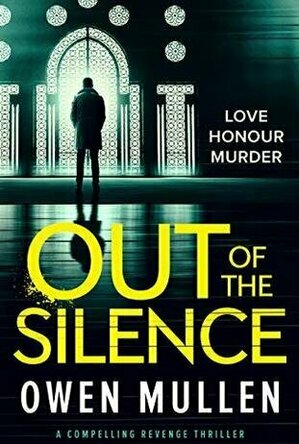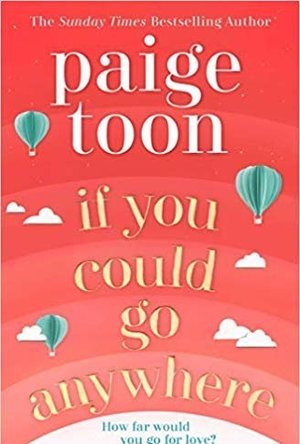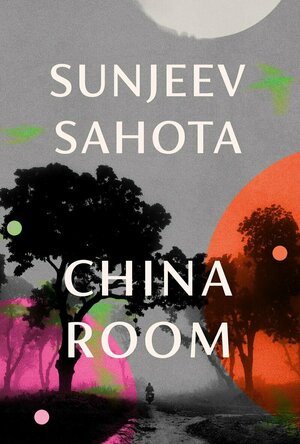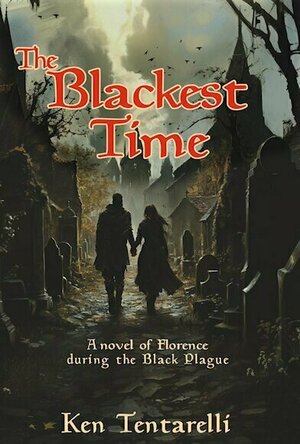
The Blackest Time: A Novel of Florence during the Black Plague
Book
It's Europe in the 1300s, and Gino, a young man living in rural Italy, leaves behind the familiarity...
Historical Fiction Medieval Italian Historical Fiction Plague Black Death
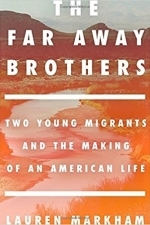
The Far Away Brothers: Two Young Migrants and the Making of an American Life
Book
The deeply reported story of identical twin brothers who escape El Salvador’s violence to build...
Politics social issues
Phil Leader (619 KP) rated Out of the Silence in Books
Nov 21, 2019
She is called Afra and was courted by a boy called Jameel in her village. But her family only see profit in Afra and sell her to a rich businessman from a distant city to be his wife. Jameel leaves the village in shame. Their lives take very different paths from there.
Ralph Buchanan used to be the toast of the journalistic world, exposing corruption and scandal, his work earning him awards and fame. However too many corners cut and too many regrets have left him washed up in Lahore, a has-been drinking his life away. He is told the story of Afra and realises he could make a difference, but before that he needs to drag himself up from rock bottom.
The first part of the book, telling the story of Afra and Jameel is relatively slow paced. It is also a pretty grim read as Mullen describes the reality of life for many women who are still treated as property in Pakistan. There is much that is hard to read, but sometimes the truth can be very ugly. This is nothing like anything Mullen has written before. But he is a writer of considerable talent and weaves the tale expertly. Naturally there is a murder mystery woven into the story, so it is not a complete departure from his normal subject matter.
Once Buchanen enters, the pace picks up and something of the style of his other books returns, with Ralph being very much in the mould of a 'noir journalist'. The story from this point forward is not only his ongoing investigation into Afra's story and the murderer, but also his own personal journey. Mullen has a fabulously light touch with both characters and language that mean the reader is drawn into the events, even more so for having read the shocking story that kicks this book into life.
Owen Mullen has tried something different here, and has sought to expose a deep injustice in the world. He has succeeded on both counts. An author that deserves a wider audience
Alison Pink (7 KP) rated No One is Here Except All of Us in Books
Jan 15, 2018
This book tells the story of Lena, a your Romanian Jewish girl living in an all but forgotten village in rural Romania as WWII rages around them. The town decides to reinvent the world in hopes of keeping the war at bay. It works for a time, until a newly forbidden radio is discovered under the floor boards of a barn turned temple. Once the radio is again brought to life, the war crashes in around them. Lena's husband is kidnapped & the people who are left behind struggle to make sense of what is going on.
Lena take matters into her own hands & decides to set out with her 2 young sons to escape the war. They walk & walk losing more than they gain along the way. The help they find turns out to be unexpected. They take from Lena, but also in the end give her much in return.
It is amazing that they were in the middle of the war yet were able to avoid much of what other Jews were not so lucky to miss. Lena's life is not without great loss however, its just not the kind I expected to experience when I picked up this book.
The thing that sticks out most to me is that despite the horrors & loss Lena went through, she was able to come out on the other side better. This is not to say that you will get a fairy tale ending with this story though. Lena is not exactly happy as the book closes, but she is hopeful. And to her that is all she can ask.
The King Never Smiles: A Biography of Thailand's Bhumibol Adulyadej
Book
Thailand's Bhumibol Adulyadej, the only king ever born in the United States, came to the throne of...

Martin Leake: Double VC
Book
Only three men have ever won a bar to the Victoria Cross; but only two lived to wear the medal and...
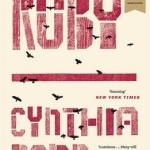
Ruby
Book
***SHORTLISTED FOR THE BAILEYS' WOMEN'S PRIZE FOR FICTION 2016*** 'LUMINOUS' Guardian 'STUNNING' New...
Leanne Crabtree (480 KP) rated If You Could Go Anywhere in Books
Sep 12, 2019
The people she meets in Italy welcome her with open arms, ready to accept her into their large extended family. They're a nice bunch of people who want to hear all about her life in the desert and living in a "cave". They show her how to make Italian cuisine and she shares her own recipes with them.
Then there's Alessandro. He's related but not by blood and there's a connection between the two of them. Both want to travel; both lost parents at an early age. But Alessandro had a rough start to life and doesn't want any sort of commitment with anyone or anything.
I loved some of the secondary characters like Stefano and Cristina. They were fun; there arguments over the music that played and their nights out/nights.
I like that this is set in Rome, a city I have visited myself so I understand some of Angie's joy at seeing some of the famous sites. And a little time in Venice, too. Another city I've had the fortune of visiting.
And lastly, cover love! How cute is this cover? I love it!

Mental: Lithium, Love, and Losing My Mind
Book
A riveting memoir and a fascinating investigation of the history, uses, and controversies behind...
Mental health biography
ClareR (6096 KP) rated China Room in Books
Aug 13, 2021
He ends up staying on the abandoned family farm: a ramshackle building that needs a lot of work. One room is locked: the China Room. This is where his grandmother, Mehar, would have lived away from the prying eyes of men, working with the wives of the other two brothers to her husband. None of the women know who their husband is - they never see them in daylight. They cook and clean for them, and then have sex with them when their mother-in-law, Mai, allows. Their main function is to bear sons.
It’s a hard way of life, but the women accept their roles. As a 21st century women, living in the West, I found this very difficult to read. It’s an oppressive, claustrophobic life - even down to the veils that they had to wear when out in public which gave the impression of suffocation. I don’t know whether any of the girls actually looked another human in the face, other than each other and their mother-in-law.
But I found this timeline fascinating, and it was a huge contrast to that of Mehar’s grandson. It’s a compelling read - I read it in one sitting, and was a bit sad when I turned the last page, to leave the world of Mehar in particular.
Many thanks to Harvill Secker and Viking for my copy of this book to read and review.
